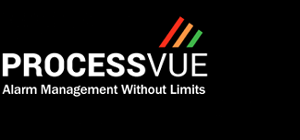Views
There are many good reasons for investing in alarm management software that go beyond helping to meet compliance requirements or simply reporting to the board. Operationally, alarm management software can help reduce operator workload, identify problematic equipment, and aid in incident investigation. From a control and maintenance perspective, it can help consolidate alarm and event data from disparate systems into a single, easy-to-manage environment, while also making it possible to benchmark your processes against global standards and focus maintenance on problem areas. And at the enterprise level, it can help to improve plant performance by reducing downtime as well as making it possible to analyse and identify best practices across different lines or plants that do similar things.
The business case then, is straight forward – alarm management software helps make enterprises more profitable and eases the compliance burden. So it might surprise you to read that when I speak with plant personnel responsible for using alarm management software, they often say that they only open it once a month to produce a report for senior management.
Many users simply aren’t getting the value they should be from their alarm management software, and this means that many companies are missing opportunities to improve their outcomes.

-
1 - Understand and use the features of your alarm management software better
This may sound obvious but understanding the capability of your software is a quick route to extracting value from it. For example, a good alarm management software suite will have reporting capabilities built in – such as is the case with ProcessVue Analyser. A tool like this makes it possible to automate and email out a customised daily report of alarms.
-
2 - Add alarm management to your morning meeting
Often, morning meetings focus on production targets, losses and challenges, product/grade changes and maintenance issues. But you should also be discussing alarms. By adding alarm issues to your daily agenda and keeping them there, you will gain better control, reduce the stress of managing alarms and reduce the likelihood of alarm-related issues and avoidable failures. It goes without saying that unresolved alarm management issues, or important alarms that are missed because they were masked by nuisance alarms, are likely to take up a lot more time in morning meetings if they result in downtime, so the daily time investment is thoroughly worthwhile. At the very least, review frequently occurring alarms – say the top 10, top 5, or any alarm with more than 500 activations in 24hrs? Choose the criteria, set up the automated reporting, and relax, knowing that nothing is going to sneak up on you.
-
3 - At every meeting, identify and agree what needs to be addressed, and track resolution in subsequent meetings
As the primary alarm system users, your operators are the main beneficiaries of any alarm improvement initiative and are fundamental to its success. Without your operators’ positive engagement in the process, your alarm management journey is likely to falter. Tracking actions and resolutions is incredibly important. I have lost count of the number of operators I’ve spoken to who say they’ve reported alarm issues on multiple occasions, but nobody listens, and nothing gets done. If you routinely review, track, and resolve alarm problems, operators are much more likely and confident to speak up and issues can be nipped in the bud or avoided altogether. The reporting is also an opportunity to set your alarm management approach on a positive footing – teams can take pride in making improvements and productivity KPIs can be boosted.
-
4 - Look to solve problems quickly where you can
Identify quick wins in your most frequent alarms and deal with them - your operators will thank you. ProcessVue Analyser includes a tool as standard to help identify quick wins, which gives a graphical and tabular indication of alarm activation times. In the example below, the table and chart show that 100% of all activations of this Priority 1 alarm are less than 7 seconds in duration. Whilst this may be a genuine alarm condition if it persists, short duration activations which may, for example, be caused by waves or ripples on the liquid surface, don’t give an operator enough time to respond appropriately to the alarm, so could a 10-second timer be added to mitigate this nuisance?
Finding and resolving issues like this is easy when your software is designed to help you.
It is not difficult or onerous to make alarm management a part of the daily routine and the benefits of unlocking the value of alarm management software are significant. Importantly, if you are not using your alarm management software to make sure it serves you, you’ll quickly realise that it is you who are serving your alarm management software – being inundated with alarms, investigating failures, and reacting to avoidable downtime.
If you feel that your alarm management software is bossing you, rather than the other way around, get in touch, or try the four steps above and let me know how you get on.
